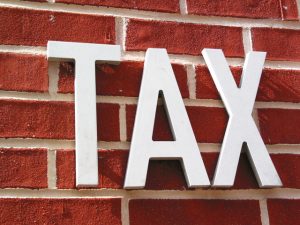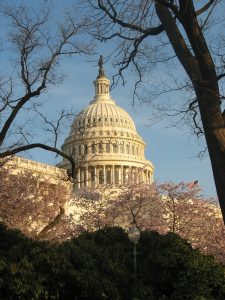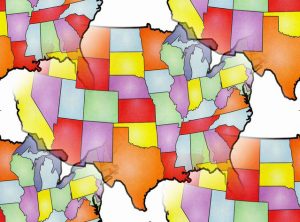Adult-use cannabis became legal in California Jan. 1 with Proposition 64 going into effect. Many cities and counties however have decided to maintain a ban on marijuana, and others did not have local regulations in place in time for the official roll out of the law.
But even after just a few weeks, the state government is already reaping big cash benefits reefer. Gov. Jerry Brown estimates $643 million in marijuana excise taxes in the first year, according to a Los Angeles Times report. Earlier projections estimated tax revenue could eventually hit $1 billion. Brown cautioned we don’t fully know every market issue that is at play, so local governments should be careful before enacting any sweeping measures.
Even as such, the lower estimates more than cover the $52 million California budgeted for 2017-2018 to establish and run the marijuana licensing system. The $643 million also does not include local sales taxes or state license fees. It costs businesses $1,000 for a license to sell cannabis. The fees are set to cover all costs associated with permits, including background checks, and resources necessary for processing and issuing. Continue reading
 Cannabis Law Group's Medical Marijuana Legal Blog
Cannabis Law Group's Medical Marijuana Legal Blog





 eliminate federal grasp over cannabis altogether and begin the healing process of the destruction caused by the war on drugs.
eliminate federal grasp over cannabis altogether and begin the healing process of the destruction caused by the war on drugs. charges in states where activity is legal. This has effectively opened the doors for officials to pursue legal action against operations per the federal
charges in states where activity is legal. This has effectively opened the doors for officials to pursue legal action against operations per the federal  commercial sales. While the
commercial sales. While the  new law did not automatically make cannabis legal everywhere in California. It is still up to local governments to regulate, restrict, and ban as they see fit or to open the floor to residential votes. Therefore, many Californians have been disappointed to discover their local laws are prohibitive to using, growing, or distributing marijuana.
new law did not automatically make cannabis legal everywhere in California. It is still up to local governments to regulate, restrict, and ban as they see fit or to open the floor to residential votes. Therefore, many Californians have been disappointed to discover their local laws are prohibitive to using, growing, or distributing marijuana. federal officials to back off of prosecuting those selling, distributing, growing, or using marijuana, so long as the offenders were following state laws. The memo was issued to reconcile the federal
federal officials to back off of prosecuting those selling, distributing, growing, or using marijuana, so long as the offenders were following state laws. The memo was issued to reconcile the federal  appointment almost a year ago, he has promised to uphold federal cannabis law, which classifies marijuana as a Schedule I narcotic under
appointment almost a year ago, he has promised to uphold federal cannabis law, which classifies marijuana as a Schedule I narcotic under  years ago with the Compassionate Use Act of 1996, and more recently with recreational cannabis being legalized through the
years ago with the Compassionate Use Act of 1996, and more recently with recreational cannabis being legalized through the  Proposition 215, i.e. the
Proposition 215, i.e. the  two decades, the
two decades, the